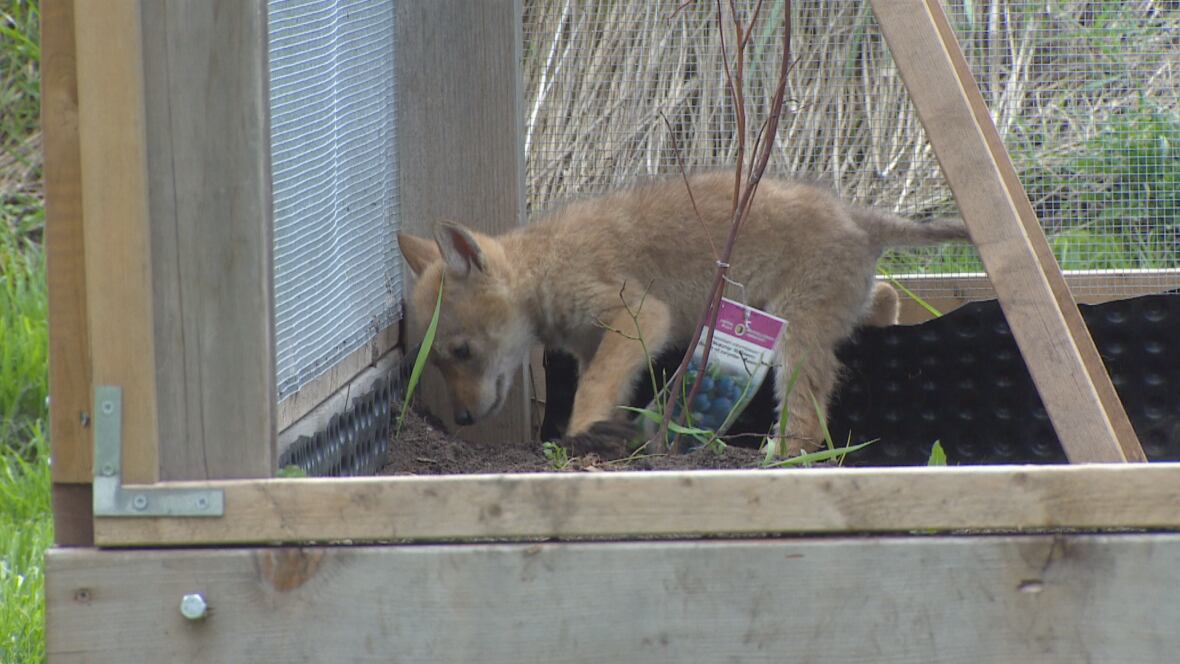Coyote pups surprise visitors at Fort York community garden
Local gardeners say coyotes have helped control rodent population

Toronto's Fort York has fallen to an adorable group of invaders.
The community garden at the fort is now home to a litter of up to seven coyote puppies, which first turned up around two weeks ago.
The young coyotes have been spotted napping in the garden plots and frolicking through the nearby brush.

Gardeners in the area say the animals' parents were a welcome addition to the area when they showed up last spring, cutting down on the local groundhog and rabbit populations, which were damaging the garden.
"Last year we had no problem at all," said Joe McReynolds, who's been gardening at the site for the past five years. "The coyotes had cleared out most of the animals that were eating our plants."
Coyotes common around Toronto
While the garden's new residents have become the talk of the fort, wildlife experts say there's nothing unusual about the pups, which have been hanging out just metres from the nearby railway tracks.
"What's going on in the Fort York area sounds like a normal situation for urban coyotes," said Nathalie Karvonen, executive director of the Toronto Wildlife Centre.
Karvonen said there are coyotes to be found all over Toronto, especially in corridors such as railway tracks, ravines and hydro lands.
She expects that the pups. which she estimates are seven or eight weeks old, will spend just a few months in the fort before they grow up and leave the den, since the area almost certainly can't support all of them.

"Normally, what happens with young coyotes is that they will stay with the parents through the summer and into the fall," Karvonen said. "Once they're mature they will move off and find their own territory."
McReynolds is hoping that the parents stick around a little longer.
"That's a very selfish attitude to take," he said, laughing. "They don't cause us any bother and we get a benefit from them."
Coyote danger 'over exaggerated'
Until the pups move on, the Toronto Wildlife Centre is advising people to leave the animals alone and not to feed them.
While the animals are capable of hunting small dogs or cats, Karvonen said their general danger has been "very much over-exaggerated."

Adult coyotes, which weigh just 30 pounds on average, are also very scared of people, which benefits both human and animal, Karvonen said.
"You're thousands of times more likely to be injured by your neighbourhood dog or cat."